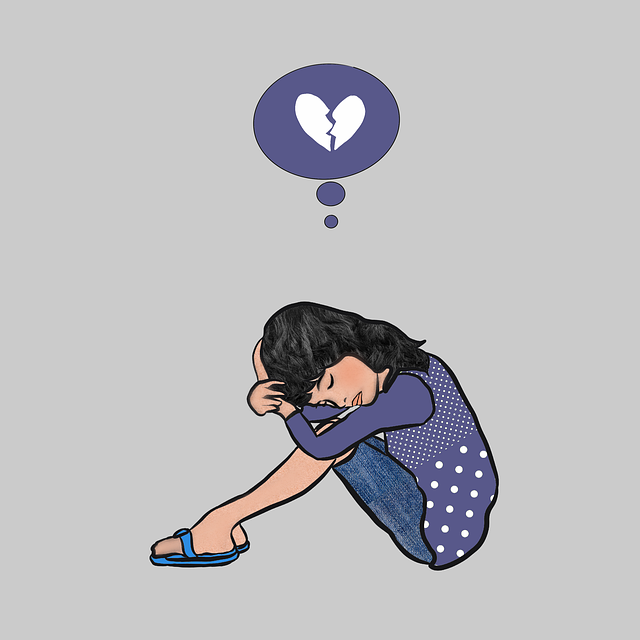“Uncovering Oregon’s Civil Commitment Laws and Navigating the Legal Landscape
Oregon’s civil commitment process plays a crucial role in providing support for individuals with severe mental illnesses. This comprehensive guide delves into the intricate details of civil commitment proceedings, from understanding the definition and jurisdiction to initiating petitions and defending against commitments.
We explore the vital services offered by Multnomah County Legal Aid, ensuring access to legal assistance for those in need. Additionally, we equip readers with knowledge about their rights, common defenses, and post-commitment considerations, fostering informed mental health law advocacy.”
- Oregon's Civil Commitment Laws: An Overview
- – Definition and purpose of civil commitment proceedings in Oregon.
- – Jurisdiction and relevant state statutes.
- Initiating Civil Commitment Proceedings
- – Who can petition for commitment?
Oregon's Civil Commitment Laws: An Overview

In Oregon, civil commitment proceedings are governed by a series of laws designed to balance public safety with individual rights in mental health cases. The state’s civil commitment process allows for the voluntary or involuntary placement of individuals diagnosed with severe mental illnesses into treatment facilities or other appropriate settings. This process is outlined under Oregon Revised Statutes (ORS) Chapter 426, which provides clear guidelines for both the rights of the individual and the responsibilities of the courts and healthcare providers involved.
Oregon’s civil commitment laws emphasize the importance of mental health law advocacy and legal representation for civil commitment proceedings, especially in Multnomah County where a significant number of cases are handled. Individuals facing civil commitment should be aware of their rights to due process, access to legal counsel, and the opportunity to contest the commitment. Multnomah County Legal Aid plays a crucial role in ensuring that vulnerable individuals have adequate legal representation throughout these proceedings, protecting their rights and providing them with a fair chance in court.
– Definition and purpose of civil commitment proceedings in Oregon.

In Oregon, civil commitment proceedings are a legal process designed to ensure the safety of individuals who may pose a danger to themselves or others due to a serious mental illness. This involves a comprehensive evaluation and court hearing to determine if an individual meets the strict criteria for involuntary confinement in a psychiatric facility. The primary goal is to balance the rights of the individual with public safety, offering a supportive environment for recovery while adhering to strict legal protocols.
The Oregon civil commitment process begins with a petition filed by a qualified professional, such as a physician or licensed clinical social worker. This petition must be supported by clear and convincing evidence that the individual meets the state’s criteria for commitment. Multnomah County Legal Aid plays a vital role in ensuring the rights of those facing civil commitment, providing legal representation and mental health law advocacy to safeguard their interests throughout the proceedings.
– Jurisdiction and relevant state statutes.

In Oregon, civil commitment proceedings are governed by a series of state statutes under the jurisdiction of the Mental Health Division (MHD). These laws provide a framework for the evaluation, treatment, and confinement of individuals with severe mental illnesses who pose a danger to themselves or others. The Oregon civil commitment process begins when a qualified professional, such as a physician or psychologist, files a petition with the court alleging that an individual meets the criteria for involuntary commitment. This process is designed to balance public safety with the rights of those facing civil commitment proceedings, ensuring due process and adequate mental health law advocacy.
Multnomah County, one of the state’s most populous, follows these statewide guidelines while also offering resources through Multnomah County Legal Aid. Individuals facing civil commitment have a right to legal representation, which can significantly impact the outcome of their cases. Mental health law advocates play a crucial role in protecting the rights of clients, ensuring they understand their options, and providing guidance throughout the often complex Oregon civil commitment process.
Initiating Civil Commitment Proceedings

In Oregon, initiating civil commitment proceedings involves a careful and structured process designed to protect both the individual seeking help and their rights under mental health law advocacy. The first step is typically taken by a qualified professional who believes an individual’s behavior or condition poses a danger to themselves or others. This can include physicians, psychiatrists, or licensed clinicians who complete and file an Application for Temporary Mental Health Treatment or Civil Commitment with the court, outlining the basis for commitment and the need for immediate intervention. The application is then reviewed by a judge, who will issue an order for temporary detention if they find sufficient cause.
Multnomah County legal aid plays a crucial role in supporting individuals’ rights throughout the Oregon civil commitment process. They provide legal representation for those facing commitment, ensuring they understand their options and are protected under the law. This includes guiding clients through hearings, challenging inappropriate commitments, and advocating for community-based alternatives where possible. Access to competent legal representation is essential for navigating this complex system, especially considering the significant implications of civil commitment on an individual’s freedom and future.
– Who can petition for commitment?

In Oregon, civil commitment proceedings are initiated when a qualified individual petitions the court to have someone committed for treatment of a severe mental disorder. Anyone who knows or has reasonable cause to believe that an individual suffers from such a disorder and poses a danger to themselves or others can petition for commitment. This includes family members, friends, law enforcement officers, healthcare providers, and even the committed person themselves if they meet certain criteria. The petitioner must provide evidence supporting the claim, including medical records and expert testimony, to establish that civil commitment proceedings are necessary.
When considering a petition for civil commitment, Multnomah County legal aid plays a crucial role in ensuring that individuals’ rights in mental health cases are protected. They provide legal representation for those facing commitment, advocating for their interests throughout the Oregon civil commitment process. This support is vital to ensure that committed individuals receive fair treatment and appropriate care while also balancing public safety concerns. Effective legal defense during these proceedings can significantly impact outcomes and protect the freedoms of those with mental health conditions.
